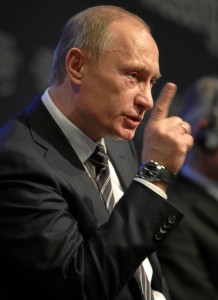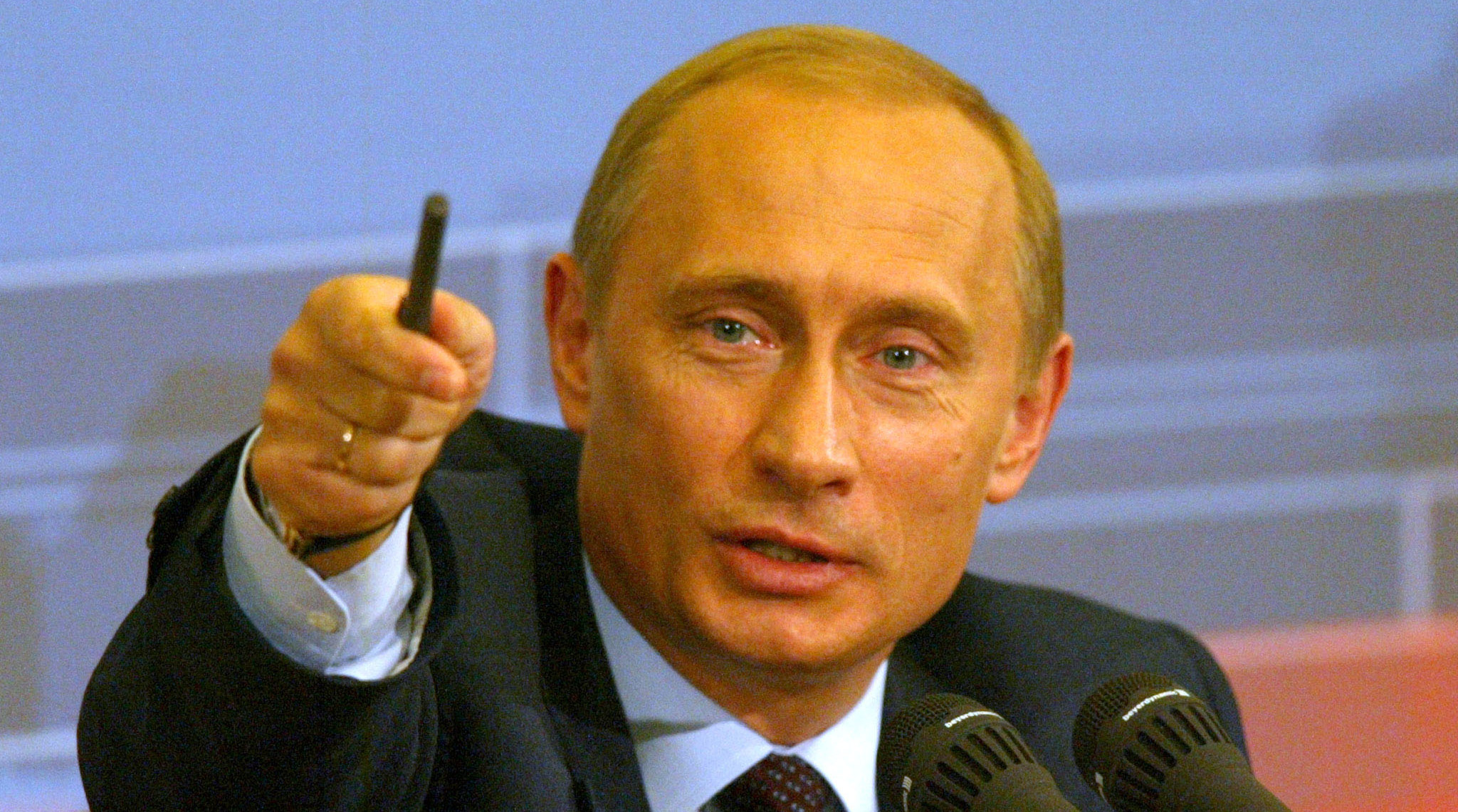Russia’s annexation of Crimea, unrest in Ukraine and subsequent narratives of a “New Cold War” bring new hopes and worries to leaders in the Middle East. Beyond Syria, where Russia has already exerted decisive influence, other countries in the region that are not part of a coherent geopolitical alignment — especially Iran — are bound to be deeply influenced by growing tension in Eastern Europe. Russia’s next moves, and responses by the United States and Europe, could increasingly affect geopolitical alignments Middle East, where important developments are underway.
Putin’s success in Crimea is perhaps explained by how much he has to lose in the region. Ukraine’s recent negotiations with U.S. energy giant Chevron will give it rights to explore the Olesky deposit — a region in the western part of the country which may potentially hold 2.98 trillion tons of natural gas. If such reserves are found, Russia’s grip over the European continent and its energy needs would be dramatically loosened. For the time being, however, Europe’s most practical source of gas is Russia.
The United States’ offer to provide expensive liquefied natural gas to Europe, for example, is unrealistic — shipping such a resource is three times more costly and environmentally inefficient than stretching a pipeline, and U.S. lobbyists are trying to halt foreign shipments for fear of increasing energy costs at home. On the other hand, Gazprom — the Russian monopolistic company that controls a fifth of the world’s gas reserves — still owns a key east-west gas pipeline running through Ukraine, one that satisfies 30 percent of Europe’s energy needs.

Sanctions against Russian leaders have had little effect, except for bringing Putin’s inner circle closer. Historically, visa retractions and foreign asset freezes have had political sway. Putin’s ability to lucidly outmaneuver his opponent, however, has always been cause for very interesting, and increasingly influential, outcomes.
President of Syria Bashar Al-Assad could not have been more delighted to witness the successful Russian annexation of Crimea. Having followed Putin’s actions in Ukraine closely, Assad was quick to express “Syria’s solidarity with Putin’s efforts to restore security and stability to Ukraine in the face of attempted coups against legitimacy and democracy.” Failed Western pressure on Russia regarding Crimea could have led to an under-the-table deal of sorts: Western powers ignore the Ukrainian crisis in exchange for Russian cooperation in Syria, essential for the resolution of one of the deadliest ongoing conflicts in the world. As it appears, however, Putin has scored an unprecedented international victory. Not only is Crimea now under Russian control, but Assad is also confident as ever that Putin will not easily dismiss his commitments in the Middle East.
Iran, facing harsh sanctions by the United States as well, has been following the situation closely. Standoff between two major powers has always been a tactic by peripheral countries to formulate strategic short-terms plans. It is currently in Iran’s best interests for Putin to remain in power and maintain the upper hand in Eastern Europe. For example, Putin could aggressively yet indirectly retaliate against the United States’ sanctions by the sale of advanced military technology to Iran — such as the sophisticated long-range S-300 air defense missile system, a system of which was banned for sale by the United States.
The current situation, however, makes Russia’s sale of a S-300 air missile defense system to Iran seem more likely. This technology could give Iran the ability to stop airstrikes against its nuclear facilities. A retaliatory Russia could thus severely hinder U.S. Middle East policy, far exceeding Putin’s more symbolic victory in Syria. If such a sale moves forward, increased armaments to Assad, while likely more controversial, would not be far behind.
The United States and Europe do have some options. An unlikely but potentially beneficial scenario for Europe would be for it to import gas from Iran instead of Russia. Iran has the second largest gas reserves on the planet and could, in theory, send gas straight to Europe with a pipeline running through Turkey. This would both diversify Europe’s gas consumption sources and improve Iran’s international standing. As unthinkable as this may seem from the point of view of the United States, if the West is interested in thawing relations with Tehran — the main purpose of the Iranian nuclear talks these past several months — this might be the time to act. This would also increase coordination between Europe and the United States, who have yet to devise a coherent and effective response to the crisis, and seem to not be on the same page.
While U.S. energy giants would gain immensely from access to a large European market for natural gas, a Western gain in Syria and Iran would have much larger political returns. President Obama’s credibility would improve and the chances of conflict with regional powers such as Iran and Israel would diminish. Ukraine is a small gem compared to the greater prize at the center of the Middle East, and the United States and Europe must take into account the potential for the Eastern European crisis to yield positive — or negative — developments in the Middle East.
Within this giant mess, Putin is in a relatively good position. Iran, and perhaps Syria, also stand to gain something out of the situation. The United States may prove toothless — as in Syria — and Putin, aware of the appeal of Russian gas and of separatist chaos in Ukraine, may continue to increase his foreign influence in Europe and beyond. The United States and Europe, on the other hand, can more closely consider the impact of Russia’s foreign policy on the Middle East, where new solutions to old problems may present the only upside to a regression to old geopolitical dynamics in Europe.
